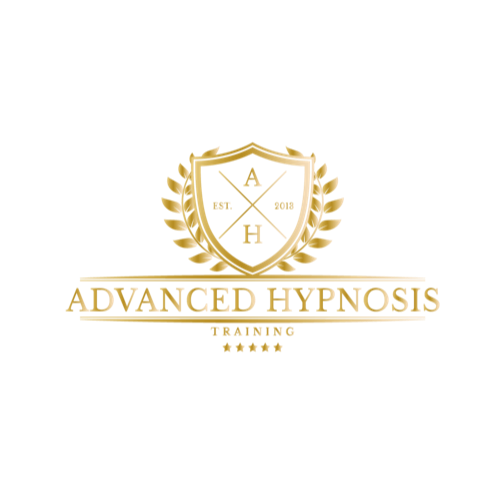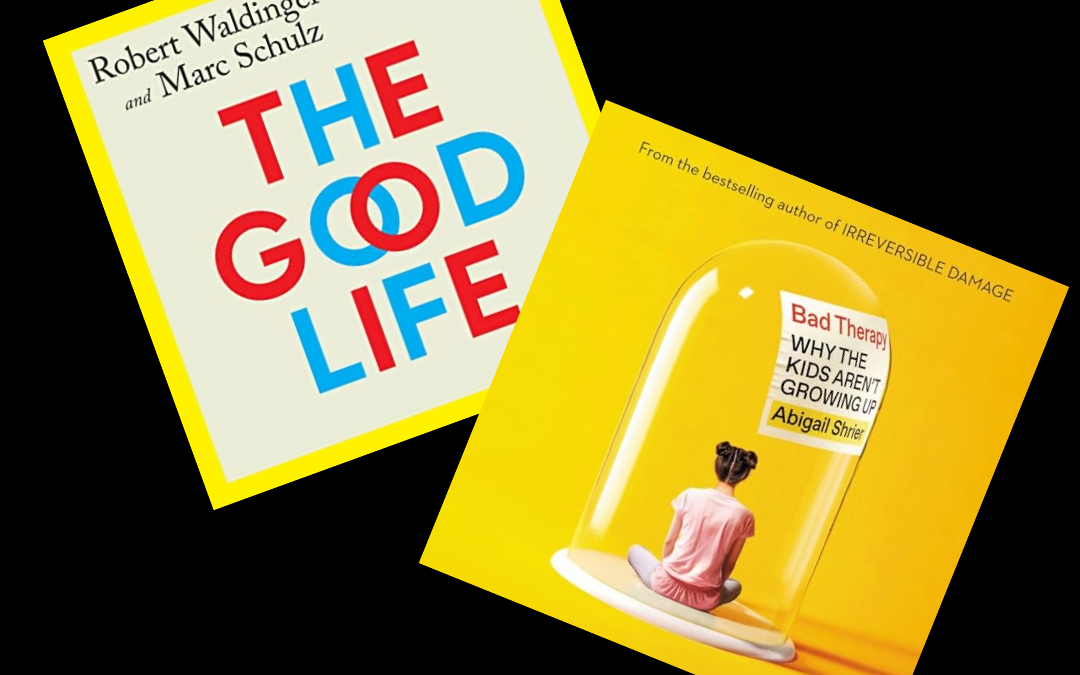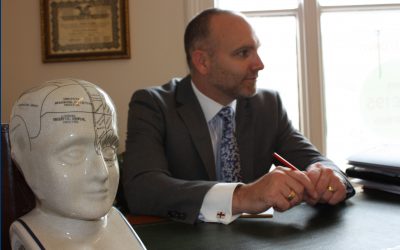
I have always felt the need to share anything decent I am reading with others and having just finished both The Good Life and Bad Therapy, I thought the few people who read this blog may appreciate the positive recommendations of both below.
One of the few benefits of smart phones (there are a few but more on that later) is the ability to listen to a lot of books on the hoof. My audible monthly subscription is one of the few where I definitely feel like I get my money’s worth and I always try to listen to something while I am walking (and if the material is good enough this extends to car journeys too).
If I am engrossed in a particularly good chapter or topic, I often will add a little extra to the walk too, so the dogs also do not have many complaints where audible is concerned, other than pup’s frustration when I am in the zone while she’s trying her hardest to elicit a treat from me for the brief moment she isn’t being a lunatic.
The first book, The Good Life by Robert Waldinger and Marc Schulz is based on findings from the 80-year-long Harvard Study of Adult Development, of which both authors are programme directors. An easy to listen to blend of anecdote and research, of all of many salient points the book makes, the most important ones are of the value of the key (most meaningful) relationships in our lives and who, what and when we give our focus and attention to and the continual attribution of meaning to the things in our life and our place in the world.
In short, a good life is found in the journey not the destination and though perhaps presented too simplistically for some (not me, I do simple well), the book delivers the message well, personalising it throughout with case studies and real-world examples that will prove relatable for the reader/listener.
It ultimately proposes that key relationships are to be treasured and nurtured, and that there are five effective traits associated with higher life satisfaction:
- Altruism
- Humour
- Sublimation (in which socially unacceptable impulses and reactions are transformed into socially acceptable actions or behavior, possibly resulting in a long-term conversion of the initial impulse).
- Anticipation (keep a realistic and pragmatic mind about future challenges)
- Suppression (maintaining a stiff upper lip and getting on with it or soldiering through).
Ironically in the final chapter of the second book, Bad Therapy (Why the kids aren’t growing up), the same Harvard study summary is referenced by the author (and former opinion columnist from the Wall Street Journal) Abigail Shrier to bring home the point (which she powerfully makes throughout the book) that it isn’t good therapy or therapists that ours and younger generations need, but rather healthy strategies for living meaningfully.
As a book the second title is not only a more involved listening and reading experience, but a thought provoking and ultimately damning examination of the mental health crisis the western world finds itself in and the damage we have done or are doing to our ourselves, our children and future generations to come.
For me, this message makes it compulsory reading for parents, teachers, care workers, therapists and if I am being honest, pretty much anyway who has a stake in developing themselves or others.
It certainly won’t be comfortable reading or listening for the faint hearted or touchy-feely type of person who thinks therapy is probably the answer to most of life’s challenges, while recoiling at the notion that maybe mum and dad do actually know what’s best a lot of the time.
I think it is high time that the likes of Abigail Shrier, Jonathan Haidt and other authors and social commentators of a similar ilk are given a platform to make the very lucid points that they are making, and we as a society stop trying to lure people into the mindset that we are all broken and in need of fixing.
Bad Therapy not only makes this point, but rightfully challenges the credentials of the people making policy or tasked with the responsibility of administering and overseeing the change in others.
As I have returned in 2024 to offering my own brand of coaching and therapy, I have made a conscious decision to refuse to see most people as broken and to always offer up practical strategies to perceived problems before discussing a clients (financial) commitment to a therapeutic or coaching route. It is not a good short term business strategy, but I am hoping, thanks in part to books such as Bad Therapy, that the therapy business becomes a business of last resort rather than an industry that creates it’s own supply through bad advice and even worse practices and marketing.
In a recent conversation with my friend Gary Turner on the Hypnosis Discussion Network Podcast (which you can listen to here) we discussed the above and how, if we can help people without taking their money by providing practical solutions or honest answers to their presenting problems, it is the ethical thing to do (and not as bad a business model as you’d think).
Therapy should be based on doing the right thing by people and the book Bad Therapy leaves us cynically pondering the question – Has the profession’s clear failure to do the right thing (mental health is the fastest growing industry) been through misguided good intentions, or deliberate social engineering and the commoditisation of mental health and brokenness?
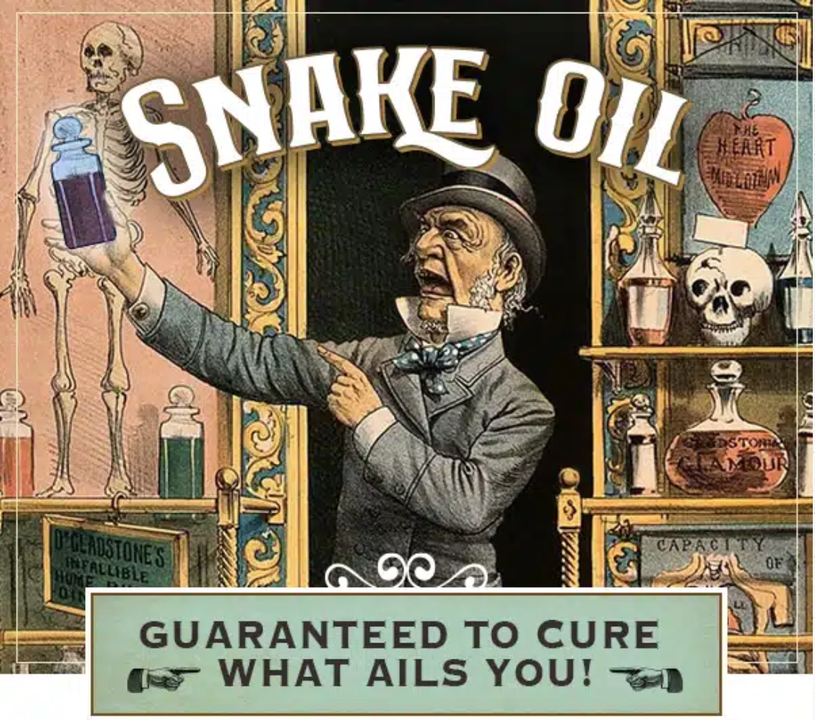
THE SCOURGE OF THE PROFESSION
Unfortunately, the hypnotherapy profession has more than it’s fair share of unethical and predatory practitioners, and dishonest and unprofessional trainers casting a shadow over the many decent people working in the industry.
I am collecting data and evidence to challenge much of the problematic behaviour that is holding all that is positive about the field back.
Please let me know – with full confidentiality, where you have witnessed individuals and organisations behaving unprofessionally (providing evidence) and I will look into it, as I have done on previous occasions.
We all have a collective responsibility to raise standards.
“
Every day is a journey, and the journey itself is home.
– Matsuo Basho
Both titles above highlight the idea that it is the journey and not the destination where the reward and true pleasures in life can be found. Who, you spend that journey with will have a heavy influence on how pleasurable and bearable it is during the highest and lowest times.

Is there something hypnotherapy can help you with?
Related Articles
Becoming a Hypnotherapist, what you might not have been told.
This blog is a cautionary tale for anyone thinking about training as a hypnotherapist. I recently saw a post in a facebook group that posed the following questions to it's members. How lucrative is the field? How much energy did it take to start a practice? Is...
Relaunching Advanced Hypnosis Training…
I thought long and hard before reaching the decision to bring Advanced Hypnosis Training back. A few years back, with my passion for the hypnosis profession beginning to wane, having already ceased or mothballed all the training I was offering (more on both that...
